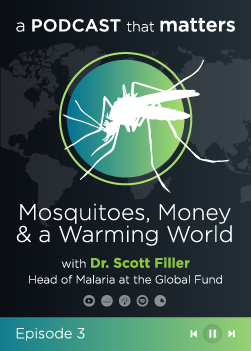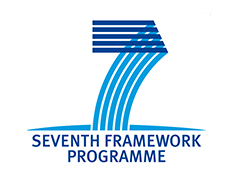
Developing sustainable and competitive land-based protein crop systems and value chains
Details
Description
Call updates
Oct 7, 2021 5:15:00 PM
The HORIZON-CL6-2021-FARM2FORK-01 call was closed on 6 October. 170 proposals have been submitted in response to this call. The breakdown per topic is indicated below:
• HORIZON-CL6-2021-FARM2FORK-01-02: 6
The evaluation results are expected to be communicated to the applicants end of January 2022.
Jun 22, 2021 4:20:09 PM
The submission session is now available for: HORIZON-CL6-2021-FARM2FORK-01-02(HORIZON-IA)
Developing sustainable and competitive land-based protein crop systems and value chains
TOPIC ID: HORIZON-CL6-2021-FARM2FORK-01-02
Programme: Horizon Europe Framework Programme (HORIZON)
Call: Fair, healthy and environmentally-friendly food systems from primary production to consumption (HORIZON-CL6-2021-FARM2FORK-01)
Type of action: HORIZON-IA HORIZON Innovation Actions
Type of MGA: HORIZON Action Grant Budget-Based [HORIZON-AG]
Deadline model: single-stage
Opening date: 22 June 2021
Deadline date: 06 October 2021 17:00:00 Brussels time
Topic description
A successful proposal should support the farm to fork’s strategy objective of a transition to a fair, healthy and resilient EU agriculture sector, in particular the goal of fostering EU-grown plant proteins, in line with the ‘’Report on the development of plant proteins in the EU’’[1]. Activities should support the transition to sustainable, productive, climate-neutral and resilient farming systems that minimise pressure on ecosystems, while ensuring fair economic returns for farmers and food consumption that is sustainable in terms of both health and the environment.
Project results are expected to contribute to all of the following expected outcomes:
- Identification of the most suitable regional and local transition paths for stimulating sustainable, resilient and economically viable land-based protein crop production for food and feed in the EU and Associated Countries, resulting in increased commercial production of such crops and enhanced food security in the context of protein requirements in the EU and Associated Countries;
- Improved, robust evidence of the social, economic, environmental, climate and health benefits and costs of increasing land-based protein crops production;
- Improved capacities of farmers to cultivate land-based protein crops through innovative advisory tools, improved and wider exchange of knowledge and best practice, adoption of sustainable crop rotation practices and collaboration with other actors in the value chain;
- Stronger innovation ecosystem for land-based protein crop development in Europe through multi-stakeholder and transdisciplinary intra-regional, trans-regional and trans-national collaboration and networking.
Land-based protein crops[2] are a source of food, feed and environmental services and have an increasingly important role to play in the transition to more sustainable farming systems that provide economic, environmental and social benefits. In view of the increase in protein demand, the sustainable diversification of protein sources in the EU and Associated Countries needs to be explored and developed. Land-based protein crops have a significant role to play in this regard. However, due to a variety of factors, their production in the EU and Associated Countries is not sufficient to cover the growing demand for plant-based proteins. It is becoming necessary to develop and ensure more sustainable and resilient supply chains, and to promote higher consumer acceptance and attractive market opportunities. Specific measures are needed to realise the potential of land-based protein crops in the EU and Associated Countries.
Proposals should build on and expand existing knowledge in order to identify the most suitable transition paths for sustainable land-based protein crop production in different pedo-climatic regions, and to develop strategies for sustainable and competitive regional protein-based crop systems and agri-food and feed chains. Proposals should cover the diversity of available and novel land-based protein crop species with a crude protein content of more than 15%, and consider conventional, agroecological and organic farming systems in all European climate/biogeographical regions. Proposals must implement the 'multi-actor approach' and should ensure adequate involvement of farmers and all relevant actors in the value chain for land-based protein crops. Proposals should build on the results of relevant projects and thematic networks funded under Horizon 2020 and include a task to collaborate with the project(s) selected under the following topic in this work programme: HORIZON-CL6-2021-FARM2FORK-01-12: Filling knowledge gaps on nutritional, safety, allergenicity and environmental assessment of alternative proteins and dietary shift. In this topic the integration of the gender dimension (sex and gender analysis) in research and innovation content is not a mandatory requirement.
Proposals should identify the most suitable transition paths for the development of sustainable new and existing land-based protein crop farming systems and agri-food and feed chains across the EU and Associated Countries. Proposals should explore the potential for value chain development, taking into consideration opportunities, constraints and impact of different tools, instruments and policies, on different value chain actors, using case studies of existing farms, networks of farms and producer organisations. Proposals should develop and test strategies for sustainable and competitive local and regional land-based protein crop systems that result in improved production techniques, cropping system design that promote crop diversification, feed efficiency, value chain development, reduced environmental impact and improved farmers’ organisation, taking into account complementarity across regions and addressing regional imbalances. Proposals should document specific support needs (advice, knowledge and best practice sharing, etc.) for farmers seeking to cultivate protein crops in different regions, assessing the availability of specific tools and developing new, innovative ones. Building on existing tools or mechanisms where available and relevant, proposals should establish a transdisciplinary, multi-stakeholder EU and Associated Countries-wide network to facilitate trans-national and trans-regional sharing of knowledge and best practice in land-based protein supply chain management and agronomic practices, including facilitating cross-regional testing of varieties. Building on existing tools or mechanisms where available and relevant, proposals should establish regional multi-stakeholder networks for advisory services, awareness raising, the sharing of knowledge and best practice, experimentation and demonstration on land-based protein crops species that are best adapted to regional conditions. Proposals should analyse the impact of climate change on land-based protein crops in various farming systems, and their contribution towards climate resilient farming and wider environmental benefits in relation to aspects such as biodiversity, input reduction, closing nutrient cycles, increased soil organic matter and improved soil health. Proposals should develop innovative measures for improving the impact of land-based protein crop production in terms of increased (agro-)biodiversity. Proposals should develop methods and indicators to compare the climate, environmental, social and health benefits and costs of greater land-based protein crop production and its industrialisation, considering the impact of policy measures on land-use changes and implications for farmers, in different farming systems and regions. Proposals should develop indicators to take into account and compare the further industrialisation feasibility and costs of the varieties considered. A method for the systematic collection of data on land-based protein crops for economic and environmental assessment should be developed.
Specific Topic Conditions:Activities are expected to achieve TRL 5-8 by the end of the project – see General Annex B.
[1]https://eur-lex.europa.eu/legal-content/EN/TXT/?uri=CELEX%3A52018DC0757
[2]This topic focuses on protein rich plants with a crude protein content of more than 15 % (oilseeds: rapeseed, sunflower seeds and soya beans; pulses: beans, peas, lentils, lupins etc.; and fodder legumes: mainly alfalfa and clover), accounting for about 1/4 of the total crude plant protein supply in the EU.



